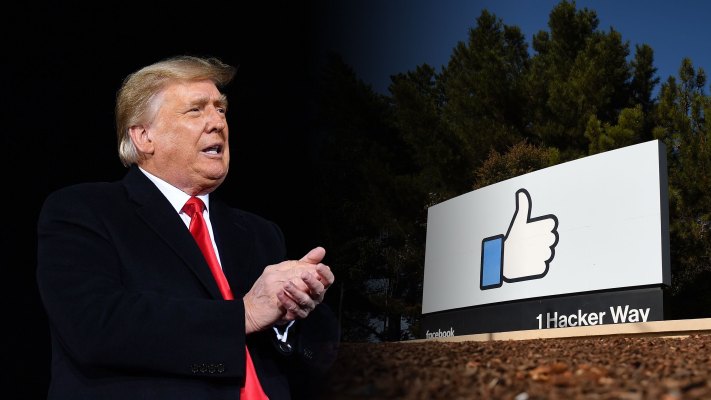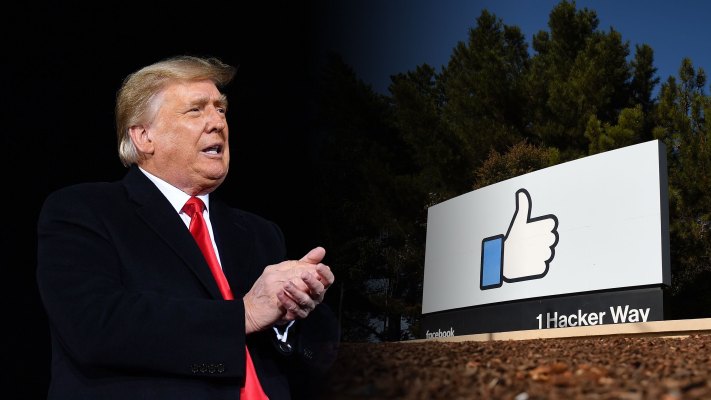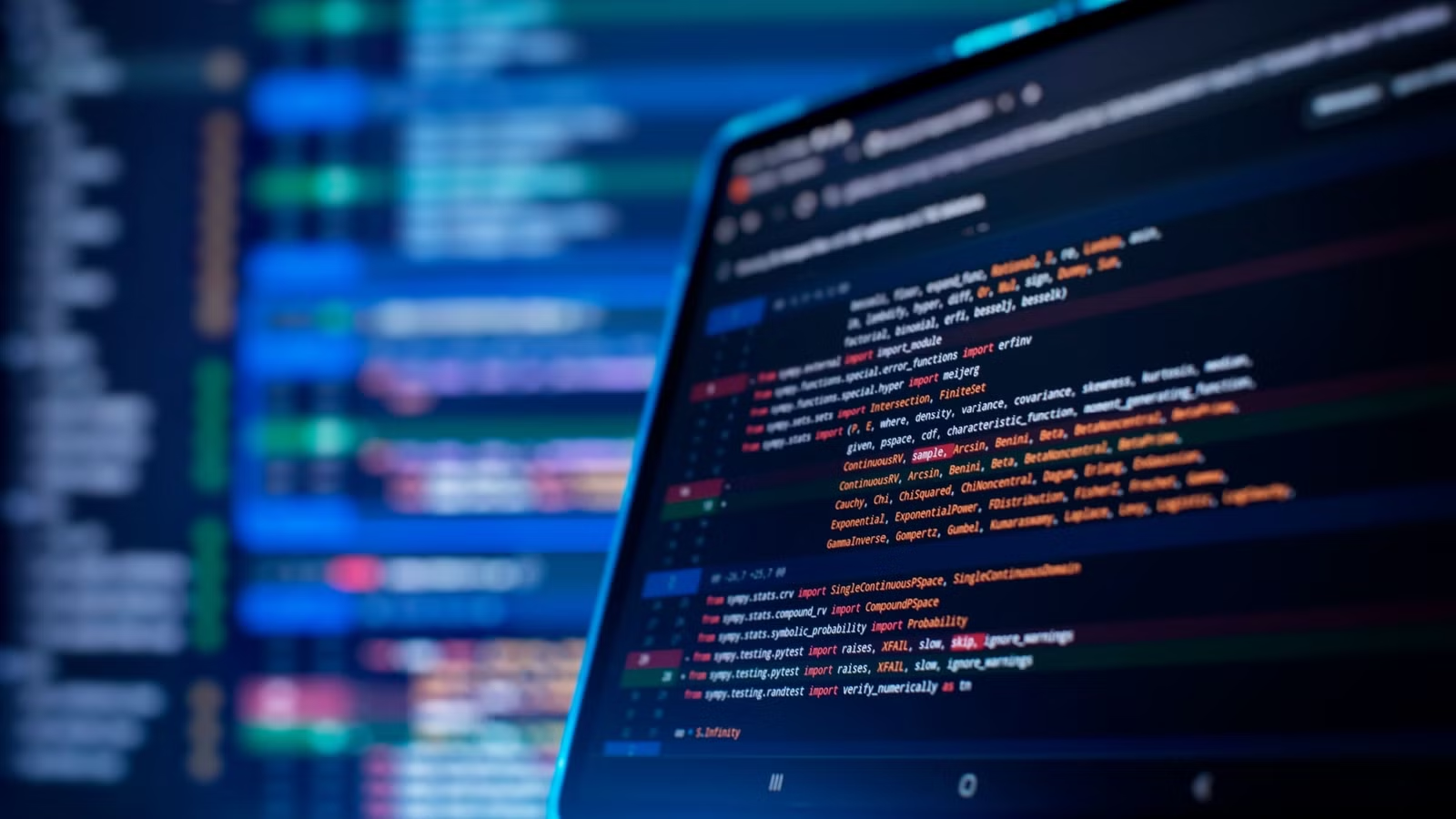For Trump and Facebook, judgment day is around the corner


Facebook unceremoniously confiscated Trump’s biggest social media megaphone months ago, but the former president might be poised to snatch it back.
Facebook’s Oversight Board, an external Supreme Court-like policy decision making group, will either restore Trump’s Facebook privileges or banish him forever on Wednesday. Whatever happens, it’s a huge moment for Facebook’s nascent experiment in outsourcing hard content moderation calls to an elite group of global thinkers, academics and political figures and allowing them to set precedents that could shape the world’s biggest social networks for years to come.
Facebook CEO Mark Zuckerberg announced Trump’s suspension from Facebook in the immediate aftermath of the Capitol attack. It was initially a temporary suspension, but two weeks later Facebook said that the decision would be sent to the Oversight Board. “We believe the risks of allowing the President to continue to use our service during this period are simply too great,” Facebook CEO Mark Zuckerberg wrote in January.
Facebook’s VP of Global Affairs Nick Clegg, a former British politician, expressed hope that the board would back the company’s own conclusions, calling Trump’s suspension an “unprecedented set of events which called for unprecedented action.”
Trump inflamed tensions and incited violence on January 6, but that incident wasn’t without precedent. In the aftermath of the murder of George Floyd, an unarmed Black man killed by Minneapolis police, President Trump ominously declared on social media “when the looting starts, the shooting starts,” a threat of imminent violence with racist roots that Facebook declined to take action against, prompting internal protests at the company.
The former president skirted or crossed the line with Facebook any number of times over his four years in office, but the platform stood steadfastly behind a maxim that all speech was good speech, even as other social networks grew more squeamish.
In a dramatic address in late 2019, Zuckerberg evoked Martin Luther King Jr. as he defended Facebook’s anything goes approach. “In times of social turmoil, our impulse is often to pull back on free expression,” Zuckerberg said. “We want the progress that comes from free expression, but not the tension.” King’s daughter strenuously objected.
A little over a year later, with all of Facebook’s peers doing the same and Trump leaving office, Zuckerberg would shrink back from his grand free speech declarations.
In 2019 and well into 2020, Facebook was still a roiling hotbed of misinformation, conspiracies and extremism. The social network hosted thousands of armed militias organizing for violence and a sea of content amplifying QAnon, which moved from a fringe belief on the margins to a mainstream political phenomenon through Facebook.
Those same forces would converge at the U.S. Capitol on January 6 for a day of violence that Facebook executives characterized as spontaneous, even though it had been festering openly on the platform for months.
How the Oversight Board works
Facebook’s Oversight Board began reviewing its first cases last October. Facebook can refer cases to the board, like it did with Trump, but users can also appeal to the board to overturn policy decisions that affect them after they exhaust the normal Facebook or Instagram appeals process. A five member subset of its 20 total members evaluate whether content should be allowed to remain on the platform and then reach a decision, which the full board must approve by a majority vote. Initially, the Oversight Board was only empowered to reinstate content removed on Facebook and Instagram, but in mid-April began accepting requests to review controversial content that stayed up.
Last month, the Oversight Board replaced departing member Pamela Karlan, a Stanford professor and voting rights scholar critical of Trump, who left to join the Biden administration. Karlan’s replacement, PEN America CEO Suzanne Nossel, wrote an op-ed in the LA Times in late January arguing that extending a permanent ban on Trump “may feel good” but that decision would ultimately set a dangerous precedent. Nossel joined the board too late to participate in the Trump decision.
The Oversight Board’s earliest batch of decisions leaned in the direction of restoring content that’s been taken down — not upholding its removal. While the board’s other decisions are likely to touch on the full spectrum of frustration people have with Facebook’s content moderation preferences, they come with far less baggage than the Trump decision. In one instance, the Oversight Board voted to restore an image of a woman’s nipples used in the context of a breast cancer post. In another, the board decided that a quote from a famous Nazi didn’t merit removal because it wasn’t an endorsement of Nazi ideology. In all cases, the Oversight Board can issue policy recommendations, but Facebook isn’t obligated to implement them — just the decisions.
Befitting its DNA of global activists, political figures and academics, the Oversight Board might have ambitions well beyond one social network. Earlier this year, Oversight Board co-chair and former Prime Minister of Denmark Helle Thorning-Schmidt declared that other social media companies would be “welcome to join” the project, which is branded in a conspicuously Facebook-less way. (The group calls itself the “Oversight Board” though everyone calls it the “Facebook Oversight Board.”)
“For the first time in history, we actually have content moderation being done outside one of the big social media platforms,” Thorning-Schmidt declared, grandly. “That in itself… I don’t hesitate to call it historic.”
Facebook’s decision to outsource some major policy decisions is indeed an experimental one, but that experiment is just getting started. The Trump case will give Facebook’s miniaturized Supreme Court an opportunity to send a message, though whether the takeaway is that it’s powerful enough to keep a world leader muzzled or independent enough to strike out from its parent and reverse the biggest social media policy decision ever made remains to be seen.
If Trump comes back, the company can shrug its shoulders and shirk another PR firestorm, content that its experiment in external content moderation is legitimized. If the board doubles down on banishing Trump, Facebook will rest easy knowing that someone else can take the blowback this round in its most controversial content call to date. For Facebook, for once, it’s a win-win situation.

















